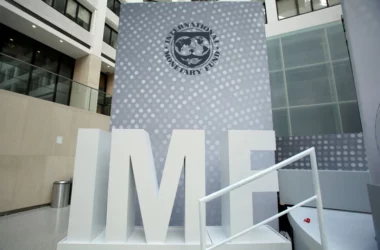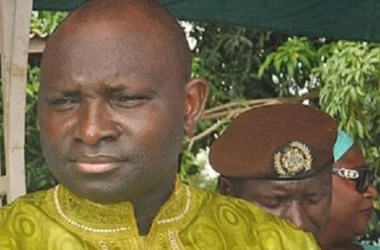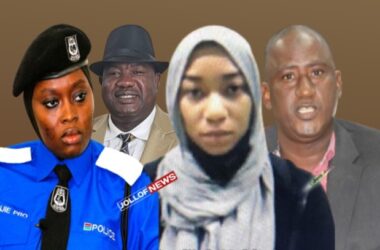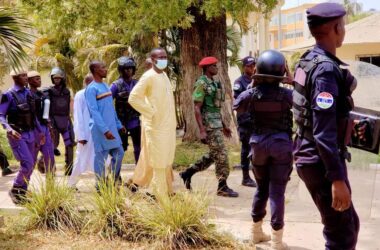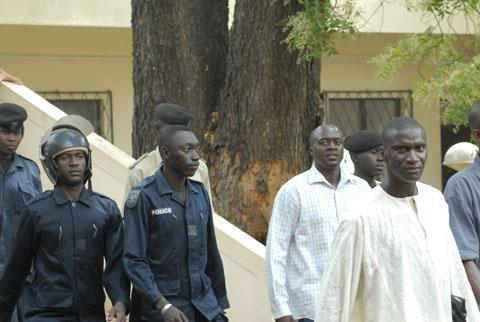 (JollofNews) – The Supreme Court of the Gambia will this Wednesday morning decide the fate of seven men who were sentenced to death for conspiring to overthrow the APRC regime of Yahya Jammeh.
(JollofNews) – The Supreme Court of the Gambia will this Wednesday morning decide the fate of seven men who were sentenced to death for conspiring to overthrow the APRC regime of Yahya Jammeh.
Lt. General Lang Tombong Tamba, former Chief of Defense Staff of the Gambia Armed Forces, Brigadier General Omar Bun Badjie, Lt. Colonel Kawsu Camara alias Bombardier, former Deputy Inspector General of Police, Modou Gaye, former diplomat Gibril Ngorr Secka and Abdoulie Joof, a businessman were in July 2010 given the death sentence by Justice Amadi of the high court in Banjul for procuring arms, ammunitions, equipment and mercenaries from Guinea Bissau to stage a coup against the government of President Yahya Jammeh.
Dissatisfied with the conviction and sentence, the men filed an appeal to the Gambia Court of Appeal arguing that the trial judge misdirected himself on the evidence and testimonies of the prosecution witnesses.
They argued that the verdict against them should be set aside on the grounds that it was ‘unreasonable and perverse’. The further argued that the sentence imposed by the trial judge against them was wrong in law as it violates section 18 (2) of the 1997 Constitution of the Gambia.
The appeal was however dismissed by Justice Joseph Wowo, Justice Na Ceesay Sallah Wadda and Justice J.B. Kalaile.
Dissatisfied with the verdict, the men filed an appeal at the Supreme Court of the Gambia. But in October 2012, the appeal was again rejected by a panel of five judges headed by Justice Raymond Sock on the grounds that it lacks merits.
In a final attempt to secure their freedom, the men who are currently held at the maximum security wing of Mile Two prisons, appealed for a review of the decision of the Supreme Court in which the court dismissed their appeal against the Gambia Court of Appeal.
They said exceptional circumstances exist requiring the court to review its judgment of the October 2012. They urged the court to set aside their convictions or in the alternative the death sentence be reduced to a lesser sentence.
They urged the court to consider the fact that no violence was made and nobody was injured or killed in the offence which they are convicted for.
The state has opposed the men’s application and has called on the court to reject it on the grounds that the death penalty given to them was appropriate.
Hadi Saleh Barkun, director of Public Prosecutions (DPP), argued that “there is no way a legitimate government can be overthrown without the use of violence and before a country is invaded by armed forces or any other force, violence must be involved.”
He added that section 54 (8) of the Supreme Court Rules has made it clear that the court can only review its judgment on exceptional circumstances and opined that none of the circumstances cited by the men prohibits death penalty.
Urging the court to reject the appeal, the argued that the men have failed to furnish the court with sufficient reasons to justify why it should review its earlier decision.
The men could be executed by a firing squad if the supreme court presided over by Pakistani born Chief Justice, Eli Nawaz Chowhan rules again them.









